But the love of a good story, of terrific characters and a world driven by your passion, courage and creative gifts is still not enough. Your goal must be a good story well told.
Robert Mckee, Story
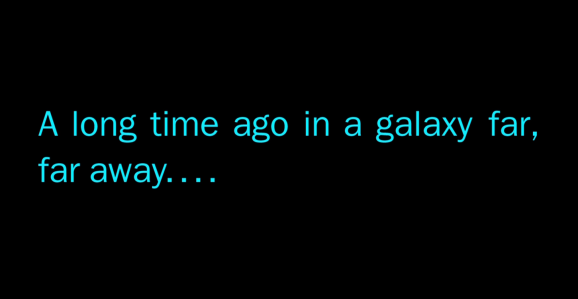
It’s an opening as known as Once upon a time. It’s the sort of opening to calls upon readers to leave the reality they know and enter a story both of the future and of the past—a hero’s journey, a villain’s redemption, a coming of age, a coming together of hearts, of friends…
…and Ewoks.
In other words: timeless. (Except maybe for The Battle for Endor, but anyway.)
The dialogue over Disney’s contributions to the Star Wars universe has been….well, a pretty shitty one. We’ve reached the point where Star Wars fans are like the Yooks and Zooks of Dr. Seuss’ The Great Butter Battle, and if you know that story, you know it doesn’t end well for anyone.
So let’s just put aside our Bitsy Big-Boy Boomeroos for a second, lean against the wall à la Charlie Brown–
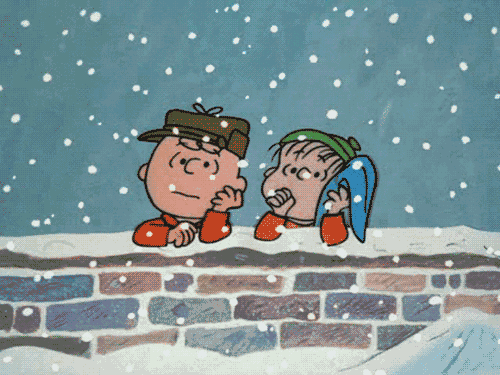
–and talk like storytellers. Not as rabid fans, or haters, or menaces, or warriors. Just people who love crafting good stories as much as they love experiencing them. And what better way to focus on the craft than by utilizing wisdom from one of the most revered voices in storytelling?
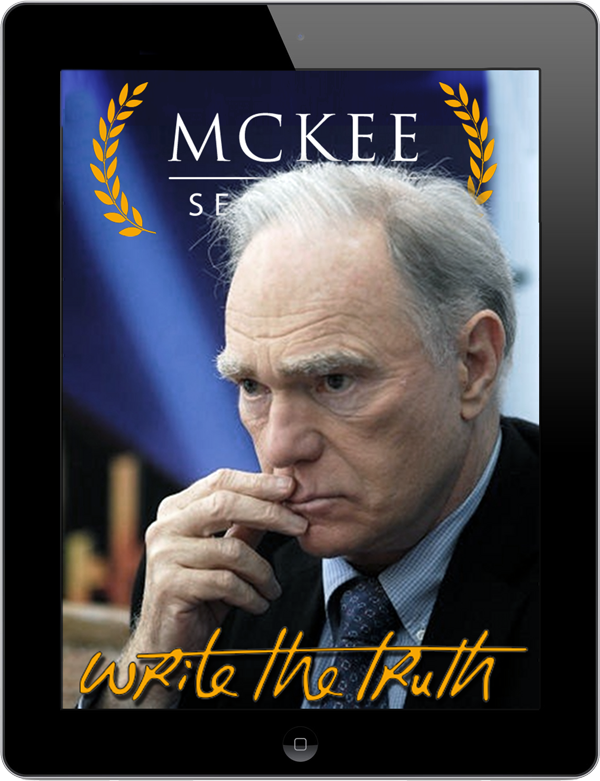
Robert McKee has been a revered voice in Hollywood for decades, as he’s taught notable storytellers like Peter Jackson, Paul Haggis, and William Goldman. His book Story is one of the few texts I’ve kept from my hellish graduate school days, as it utilizes films from several different genres to show how smart writing with character development, tension, and scene structure can build a powerful story with which audiences can connect.
It is with McKee’s craft lessons in Story I’d like to discuss the flaws that plague Episodes VII, VIII, and IX of the Star Wars saga. As storytellers, I think we can all agree on some pretty important things are necessary to make a strong story, and therefore understand certain choices that both JJ Abrams and Rian Johnson made with their installments. To be clear,I’m not going to bash either director. On the contrary, I think both brought some positive elements to Star Wars that shouldn’t be dismissed just because you don’t agree with all of their other creative choices.
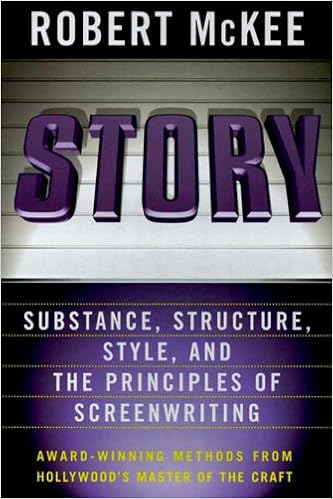
No, the flaw lies in the foundation of the sequel trilogy. Like the parable of the foolish man who builds his house upon the sand, the recent Star Wars trilogy was built without a solid foundation. In other words, the creative powers of Disney failed to do the necessary worldbuilding—galaxy-building, if you will—for the stakes of the new trilogy to appeal to audiences old or new.
In this blog series, I’m going to utilize McKee’s words on story craft to break down where the sequel trilogy’s potential shines as well as where it dims. Every film has its moments, so I’m not going to dwell for a thousand words on one and then just rush through another.
And the truly tragic part? This could have aaaaaaall been avoided had Disney stuck with what it already built.
Story is about originality, not duplication.
Robert McKee, Story
Disney purchased Lucasfilm and rights to Star Wars in 2012, and by 2014 had created its own original storyline in the Star Wars Universe. The story was set between the prequels and original trilogy, a time when the Empire are hunting down any surviving Jedi and the Rebellion is slowly beginning to form.
Star Wars: Rebels ran for just four seasons, but in that time gained a solid following of fans, a good merchandise line, and even splinter stories in books and comics. The cast was a mix of alien and human-like folks, male and female, adults and kids, each with unique talents that came together to create a strong team to deal with a vicious gallery of Imperial foes.
The storyline fit snugly in the between the established trilogies without disturbing any of the arcs of previously established characters in the Skywalker episodes. Audiences were happy to go on adventures with the scrappy kid, laugh at the cranky droid, marvel at the piloting smarts of the lady alien, feel for the Jedi mourning the loss of his brethren…
…in other words, Disney had successfully built a solid setting in this galaxy far, far away that was unique while also adhering to the state of this galaxy as Revenge of the Sith left it.
Story is about eternal, universal forms, not formulas.
Robert McKee, Story
You’d think that for a studio that loves making live-action remakes of their animated properties, bringing a live-action adaptation of Rebels to film would have been the easy-peasy choice for their feature debut with the Star Wars franchise. They had fans happy with the show, they had storylines all written out ready to go, characters fun and fleshed out. All the hard work of worldbuilding, character development, and plotting was already done.
But perhaps, to those Disney Powers That Be, this was the problem.

Ezra the kid wasn’t like Luke enough.
Hera the pilot wasn’t like Leia enough.
Kanan the Jedi wasn’t like Kenobi enough.
The Inquisitor wasn’t not like Vader enough.
Rebels wasn’t enough like Star Wars’ original trilogy, a film series loved by millions across multiple generations. Rebels’ own successes just weren’t enough.
Disney was determined to repeat the cosmic success of the 70s and 80s, and decided the best way to do this was by treating those original films as a formula to follow.
This choice, right here, before ANY director could say “Action!”, marks the beginning of the troubles for Disney’s Star Wars films. Had they begun with a feature film cast with their own characters and followed previously tested storylines, they would have planted the seeds of goodwill among audiences while also learning the ins and outs of producing a sci-fi adventure epic that is a Star Wars film.
Instead, they chose to fly as close to A New Hope as possible. Too close, as we shall see.
~STAY TUNED NEXT TIME!~
Oh, I’m keen to do some analysis of the entire sequel trilogy, so you’re stuck with me on this topic for a little while. 🙂 But I’ll also throw in some AMAZING music by Daniel Pemberton I got for Christmas, plus there’s some swanky author interviews coming, too.
Read on, share on, and write on, my friend!
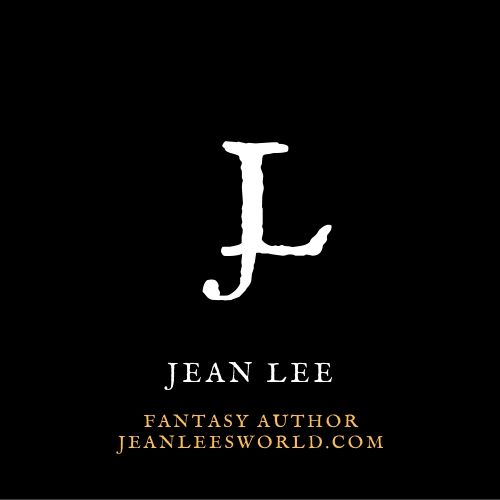

A script is like a lyric. If either don’t work then neither the movie nor the melody have got a hope ~ George
LikeLiked by 4 people
Amen to that, my friend. x
LikeLiked by 1 person
So agree with you on Star Wars. The reboot has just been soulless. Bung in a few old characters to make people love it. Sadly they missed that the characters became loved due to the quality of the surrounding landscapes and storytelling. Rebels and Clone Wars are a much better watch than any of the recent big budget movies. Surprised we have not had to suffer a Star Wars, Avengers and Toy Story crossover storyline yet. Imagine the fun you would make Star Wars if you got your hands on it.
LikeLiked by 1 person
Sometimes a story is flawed from the start and no amount of special effects or action sequences can lift it into brilliance. I’m looking forward to reading the rest of this series, Jean! And thanks for the recommendation of the McKee book; I’m always looking for the next craft book to dive into.
LikeLiked by 4 people
And I’m looking forward to writing it! 🙂 Rereading STORY has been great fun. Considering it was published in the 90s, you should be able to find it at a library or somewhere. I hope you dig it!
LikeLiked by 2 people
I’ve put it on my wish list. I notice that the used options are almost as pricey as the new copies, which is usually a good sign! But I’ll look around.
LikeLiked by 1 person
I know little of Star Wars save for what my host of grown up sprogs have told me, save for the very early movies I took them to in times long gone when popcorn came in a small inoffensive paper packets as opposed to the slop buckets such snacks now expected as a norm. I digress. One thing stands out, why on earth or indeed a planet far, far away did they snuff out Yoda? Whether visible or in the background, he ran the show. ‘Tis like killing Hamlet after the first act. Best wishes for a Happy New Year to you and yours, The Old Fool
LikeLiked by 4 people
Oh, poor Yoda! It’s a hard moment to watch in the film, but that’s part of what makes the film’s story a good one. A blessed New Year to you and yours, Master Steeden! I tip my hat and will hunt for the perfect Yule log…
LikeLike
Hi Friend, sorry for the long absence. I have been very ill – I still am. Haven’t started your latest book yet, but hopefully will read it in February. Now struggling to keep my blog afloat. Don’t want to give up.
I will watch the Star Wars final installment in two weeks, and looking forward to reading your Star War series. Have a wonderful 2020!
LikeLiked by 2 people
Oh no, Friend! I’m so sorry to hear you’re sick. No worries about the story, though I’m happy you wish to read it! Just take care of yourself, and get your health–and camera lens–back up to snuff! xxxxxx
LikeLiked by 1 person
I haven’t seen these three instalments of ‘Star Wars’. I thought ‘what’s the point?’ and your post confirms my thinking.
LikeLiked by 1 person
Oooooh yes. It’s such a botched wreck of a job. I do hear, though, the new television series they have focusing on bounty hunter is going well. So there’s hope for the Star Wars universe yet.
LikeLiked by 1 person
I’ve not seen any of the recent films you’ve described and nor will I bother now! Hours of my life which I would never get back 😉
And they killed off Yoda??? That I do not like. 😦
I’ll have to look out for the McKee book though.
LikeLiked by 2 people
Well, Yoda did die in the original trilogy, but the sequel trilogy has been nothing short of a mess. There’s been enough hate thrown around, so I won’t add to that. I’m just going to treat these movies as cautionary tales in storytelling so that such a mess is never repeated…
And yes, the McKee book is great! Twenty years old, and still totally relevant. 🙂
LikeLike
I obviously wasn’t paying attention. I’m wondering if I did see all the original films. Lost in the mists of my mind, I guess.
LikeLiked by 1 person
Oh hey, no worries. We’ve had them on now and again for the kids, and they enjoy the prequels, too, which has given us some sobering perspective in how Disney’s presentation of the Star Wars galaxy. It’s easy to lose track of those plots unless you’ve been watching them a lot 🙂
LikeLike
A fascinating post, Jean, in a small way, because I hadn’t realised I’ve missed seeing episode VIII! Seems like I needn’t worry, though. In fact, I’m wondering whether to bother with IX. Now that you mention it, I do remember looking at my watch more than once while watching VII – never a good sign. I think my sentimental attachment to watching the first star wars film carried me through – what an awe-inspiring moment that was.
LikeLiked by 2 people
YES. The timeless Hero’s Journey matched with a western set in space? Add John Williams’ score and powerful effects that STILL look good today, and it’s a perfect storm of storytelling power. I just saw Episode IX last night, and….ooooooh boy. There is much to mourn in the missed opportunity that was Disney’s trilogy.
LikeLiked by 1 person
You’re hilarious, Jean. I never saw any of the animated versions so I can’t attest to what they got right or wrong, but your theory sounds spot on and Robert McKee’s book was so very eye-opening for me (Casablanca!) that someday I do hope to take a class with the grandmaster and up my screenwriting street cred. As to Star Wars, it was a bit of a yawn, but I love love love (did I mention that I love) Adam Driver so it was a yawn you could get behind. I’m not sad that it’s over though, the way I was with the original ones, so yeah, they could have probably used a little less nostalgia and little more originality if they wanted to hook the next generation of folks. I am still a hardcore Lord of the Rings fan and nothing I’ve read or seen since has matched that brilliance — although Game of Thrones got so incredibly close then blew it with the weird ending — not even Star Wars that was first out of the gate back in the 70s. Who knows? Maybe Princeborn will be next!. At least that’s my wish for you. Write on, sister. And a very Happy New Year. May we achieve our most heartfelt writing (and life) goals in 2020!
LikeLike
Pingback: #lessonslearned in #writing #fiction from #robertmckee and #starwars: there are consequences to shoddy #worldbuilding. Part 2: #TheForceAwakens to #MissedOpportunity | Jean Lee's World
I think the minute anyone puts other priorities in front of the need/drive to tell a story, then they are immediately in trouble. Even if they don’t know it… We are hardwired to tell and listen to stories – it has defined us as a species and has driven us forward spiritually and technically. We follow our own longing to define ourselves within our own story and I’m guessing that in their desire to make money out of the Star Wars franchise, Disney forgot that very important truth. Thank you for this intriguing example, Jean.
LikeLiked by 1 person
YES. You nailed it. Disney would be drowning in money had they followed Marvel’s example and worked hard on the stories first.
LikeLiked by 1 person
I’d say more but Biff refuses to sleep and keeps coming down to tell us his bear is tired….gah, go to sleep, both of you!
LikeLiked by 1 person
Lol… I recall those moments. It, too, shall pass!
LikeLiked by 1 person
Pingback: #lessonslearned in #writing #fiction from #RobertMcKee and #StarWars: there are consequences to shoddy #worldbuilding. Part 3: Digging #plotholes with false #mystery. | Jean Lee's World
Pingback: #AuthorInterview: #indie #writer @ColinGarrow discusses #bookreviews, #SherlockHolmes, #writing #MG and #mysteries, and the importance of following through on the #writingprocess | Jean Lee's World
Pingback: #Anxiety is not just a #parentproblem. It is a #writerproblem, too. | Jean Lee's World